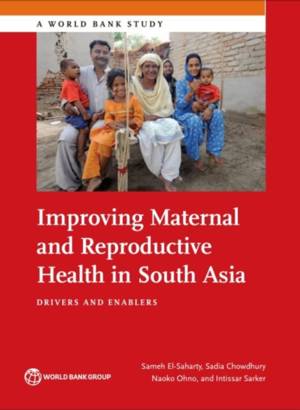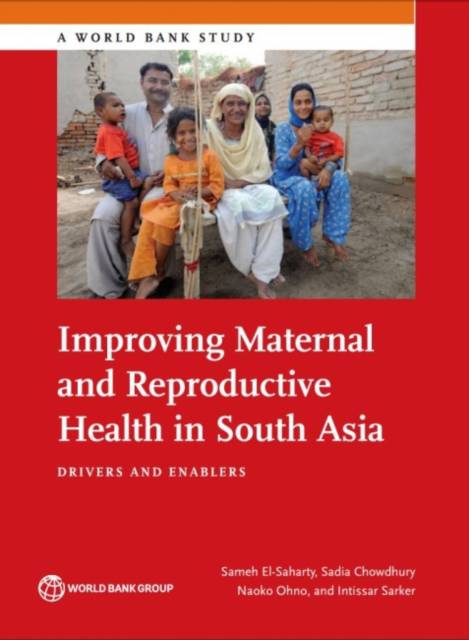
Je cadeautjes zeker op tijd in huis hebben voor de feestdagen? Kom langs in onze winkels en vind het perfecte geschenk!
- Afhalen na 1 uur in een winkel met voorraad
- Gratis thuislevering in België vanaf € 30
- Ruim aanbod met 7 miljoen producten
Je cadeautjes zeker op tijd in huis hebben voor de feestdagen? Kom langs in onze winkels en vind het perfecte geschenk!
- Afhalen na 1 uur in een winkel met voorraad
- Gratis thuislevering in België vanaf € 30
- Ruim aanbod met 7 miljoen producten
Zoeken
Improving Maternal and Reproductive Health in South Asia
Drivers and Enablers
Sameh El-Saharty, Sadia Chowdhury, Naoko Ohno
€ 56,45
+ 112 punten
Omschrijving
South Asia Region (SAR) has decreased maternal mortality ratio (MMR) by 65 percent between 1990 and 2013, which was the greatest progress among all world regions. Such achievement implores the question, What made SAR stand out against what is predicted by standard socioeconomic outcomes? Improving Maternal and Reproductive Health in South Asia: Drivers and Enablers identifies the interventions and factors that contributed to reducing MMR and improving maternal and reproductive health (MRH) outcomes in SAR. In this study, the analytical framework assumes that improving MRH outcomes is influenced by a multitude of forces from within and outside the health system and considers factors at the household and community levels, as well as interventions in other sectors and factors in the enabling environment. The analysis is based on a structured literature review of the interventions in SAR countries, relevant international experience, and review of the best available evidence from systematic reviews. The focus of the analysis is mainly on assessing the effectiveness of interventions. The findings from this study indicate that the most effective interventions that prevent maternal mortality are those that address the intra-partum stage - the point where most maternal deaths occur - and include improving skilled birth attendance coverage, increasing institutional delivery rates, and scaling up access to emergency obstetric care. There is also adequate evidence that investing in family planning to increase contraceptive use also played a key role during the inter-partum phase by preventing unwanted pregnancies and thus averting the risk of maternal mortality in SAR countries. Outside the programmatic interventions, the levels of household income, women's education, and completion of secondary education of girls were also strongly correlated with improved MRH outcomes. Also, there is strong evidence that health financing schemes - both demand and supply side - and conditional cash transfer programs were effective in increasing the uptake of MRH services. The study points out to many other interventions with different degrees of effectiveness. The study also identified four major reasons for why SAR achieved this progress in MMR reduction. The best practices and evidence of what works synthesized in this study provide an important way forward for low- and middle-income countries toward achieving the health-related Sustainable Development Goals.
Specificaties
Betrokkenen
- Auteur(s):
- Uitgeverij:
Inhoud
- Aantal bladzijden:
- 192
- Taal:
- Engels
- Reeks:
Eigenschappen
- Productcode (EAN):
- 9781464809637
- Verschijningsdatum:
- 25/11/2016
- Uitvoering:
- Paperback
- Formaat:
- Trade paperback (VS)
- Afmetingen:
- 178 mm x 254 mm
- Gewicht:
- 344 g

Alleen bij Standaard Boekhandel
+ 112 punten op je klantenkaart van Standaard Boekhandel
Beoordelingen
We publiceren alleen reviews die voldoen aan de voorwaarden voor reviews. Bekijk onze voorwaarden voor reviews.









